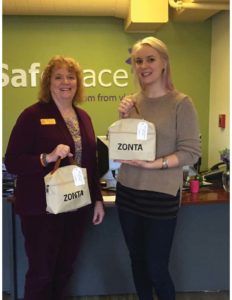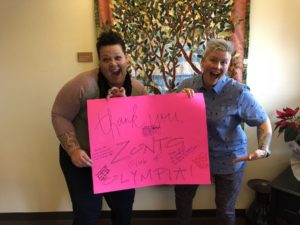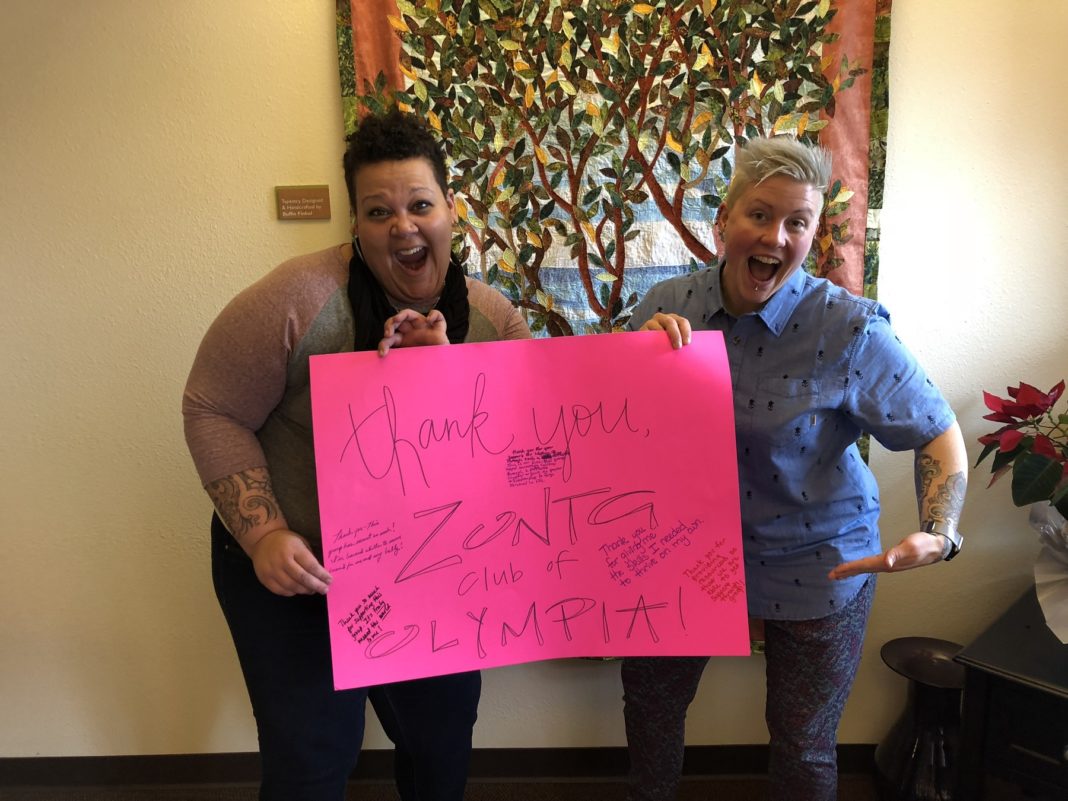Submitted by SafePlace
Empowering survivors of domestic and sexual violence to take the lead in their own healing is a basic tenet of SafePlace’s style of service delivery. This is an organic process, always changing and evolving to best meet the needs of survivors in our community.
“Thank you for giving me the life skills to thrive on my own.” –SafePlace support group participant

As the frequency and severity of domestic violence increases in our community, SafePlace remains focused on how we can improve services, increase survivor access to resources, and move closer each day to a violence-free community. The question that is always at the forefront of our planning is, “How can we better serve survivors?”
One exciting recent programmatic development is around our survivor support groups. For many years we’ve been utilizing a traditional open-ended support group structure, but in talking to participants and examining outcomes, we felt like there was untapped potential around the support groups that was not being realized.
How can we better serve survivors? We have been able to strengthen the effectiveness of our support groups by revamping the format to better meet the current needs of our community. Both our Spanish and English support groups have moved to a psychoeducational model that is are 10-week skills-based groups, focused on supporting survivors in getting connected, building skills and building healthy support networks for long-standing success.
Shifting to this format allows SafePlace to:
- Implement best practices to increase the effectiveness of time spent in group
- Serve more survivors who are in need of the support group environment for their process
- Provide a predictable start- and end-period for those in the group
- Set reasonable timeframes for those waiting to start the process
- Empower survivors from the start to build strong support networks for themselves that can be accessed more readily than a once-a-week group
- Set clear baselines to measure group growth and progress, allowing for tangible results that are attractive to funders, which can result in additional resources for services in our community
- Tangible plans established for next steps, so the ending of the group serves as the beginning of a bright and promising future
This week we finished our first pilot group in this new format, and we have already seen positive results. Clients report feeling better prepared for what’s next, connected to a group of like-minded individuals who support them and hold them accountable, and confident in moving forward successfully. As one participant said, “This group helped me build healthy relationships and gave me tools for dealing with this difficult chapter and empowering me for future chapters.”
Once groups have completed the initial 10 weeks, they may opt to form a Circulo de Mujers/Women’s Justice Circle format, which encourages participant leadership. In this space, survivors recognize their strengths, develop skills as leaders and become agents of change.

All of this work is made possible by the many donors in our community donating both programmatic support and tangible items that help survivors meet their basic needs. Partnering organizations like the Zonta Club of South Sound, Zonta Club of Olympia, and Women United are just a few examples of local groups of caring people who consistently provide support in the form of hygiene supplies, diapers, food, clothing, gift cards and financial contributions. These donations together create a web of support that survivors access through SafePlace.
We are so thankful for the support this community has extended to us throughout the years, and we are looking forward to a bright future with these exciting program changes!
About SafePlace
SafePlace has been serving survivors of domestic and sexual violence since 1981. Programs include 24-hour help line, emergency shelter, support groups, sexual assault medical exam advocacy, legal advocacy and in-person advocacy, all of which can be provided in the survivor’s native language. Contact us at (360) 786-8754 or on the web at www.SafePlaceOlympia.org. To speak to an advocate anytime day or night, call (360) 754-6300.





















































